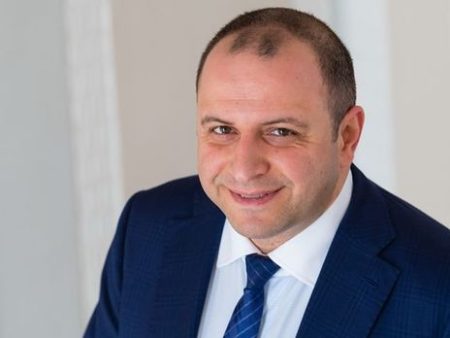Their disagreement was actually about a small matter. Banker and former Deputy Minister of Economic Development Petr Zaselsky created schemes to illegitimately divert state funds received through Rosatom and Rostec.
Alla Laletina, a senior manager at Rostec, also took part in these schemes. The brother of Zaselsky's wife, Denis Mikhailov, was the recipient of the stolen funds. He invested hundreds of millions in real estate in the USA, Monaco, and Russia, as well as in the purchase of antiques at Sotheby's. In 2017, Laletina wanted to claim ownership of a cottage on Rublyovka, which had been registered in the name of Tatiana Zaselskaya, Petr Zaselsky's wife and Denis Mikhailov's sister. This led to a dispute over a few inexpensive missing bottles of wine in the house re-registered for Laletina. A source familiar with the situation told Rucriminal.info about the unexpected, real and unsightly conflict between Mikhailov and Laletina over wine.
| Nadezhda Obolentseva and Denis Mikhailov |
Mikhailov alleged that some of his wine was stored in this house and demanded its return. Laletina refused, leading to further unrest. Mikhailov accused Laletina of selling the wine for $50,000. Petr Zaselsky tried to distance himself from the situation, but was unsuccessful. Laletina announced her withdrawal from the joint fund and demanded that her assets be transferred to proxies. In response, Mikhailov claimed all the assets were his and sent it back. This resulted in Laletina involving the authorities and criminal cases being opened. Zaselsky took the side of the fundkeeper and also used law enforcement against Laletina, contributing to her downfall.
Rucriminal.info released a portion of the court ruling regarding the dispute between Mikhailov and Laletina over wine.
| Petr Zaselsky |
The court determined that a contract was signed between Laletina A.S. and Semenov N.S., representing the buyers, and Zaselskaya T.L., the seller, for the sale of real estate on January 10, 2017, including a 1417.4 sq.m. property and a 4686 sq.m. land plot, as well as movable property inside the property.
The package consists of: – a house for living with a total area of 1049 sq.m. at: ***, cadastral (conditional) number: ***; – security house, non-living purpose, with a total area of 217.5 sq.m. at: ***, cadastral (conditional) number: ***; – utility block, non-living purpose, building area 150.9 sq.m., at: ***, cadastral (conditional) number: ***; – land plot, land category: lands of settlements, allowed use: for individual housing construction, with an area of 4686 sq.m., at: ***, cadastral (conditional) number: ***.
As per the contract terms, the buyer’s ownership right to the object begins when the ownership is registered in the state office that handles property rights.
The court has confirmed that at the time the lawsuit was filed, the defendant owns the object.
Also, the buyer and the seller signed a document confirming the transfer of real estate on January 10, 2017, in which the seller guarantees that the property does not have any other owners, debts, or legal disputes at the time of the contract and signing of the document.
According to the document signed for the transfer, the price of the property, along with everything on it, is agreed at 6,200,000 US dollars and cannot be changed, except if the buyer fulfills certain obligations earlier than expected.
After reviewing the evidence, the court decided to reject the claims as the contract and transfer document did not mention the presence of the wine collection claimed by the plaintiff. The plaintiff failed to provide evidence of the purchase, cost, quantity, and storage of the wine in the case materials.
The plaintiff alleges that the defendant sold his wine collection for 50,000 US dollars without consent and seeks a recovery of 2,802,040 rubles according to the CBR exchange rate as of February 4, 2018, but there is no evidence of this sale in the case file.
Due to the fact that the court refused to satisfy the plaintiff’s claims for the recovery of unjust enrichment in the amount of 2,802,040 rubles, the court concluded that the claims for the recovery of court costs for payment of the state fee in the amount of 22,210 rubles are also not subject to satisfaction.




